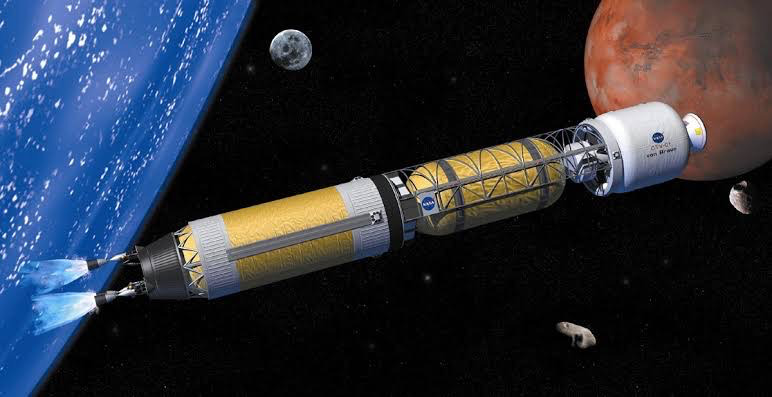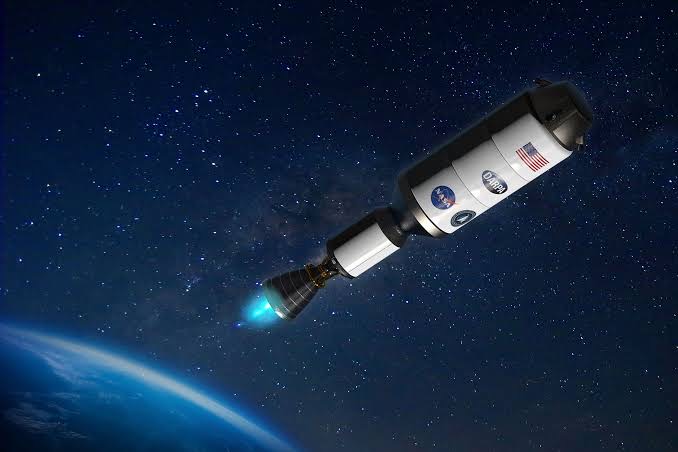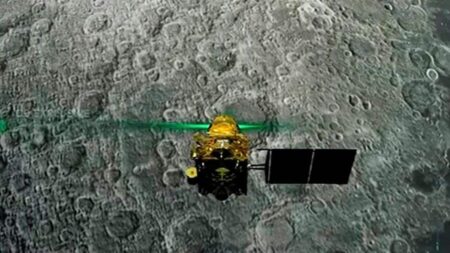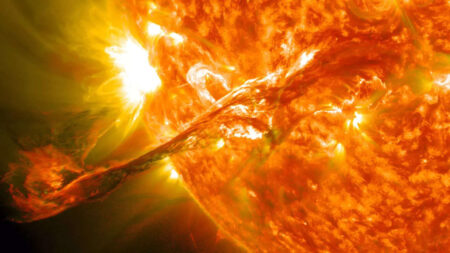By Zoya Saleem
May 23, 2024
A nuclear rocket engine will help NASA reach its goal of Mars
NASA is putting a lot of trust in nuclear rocket engines to get its people to the red planet in the quest to become the first to do so.
The organization announced a collaboration with the Defence Advanced Research Projects Agency, or DARPA, earlier this year to create a rocket that employs nuclear propulsion to transport astronaut crews to distant planets like Mars. By dramatically reducing the amount of time required to get to Mars, this kind of technology would reduce the danger that long-duration space flights provide to the people on board.
DARPA
Reaching the red planet normally takes a conventional spacecraft propelled by burning liquid fuel seven to eight months. Nuclear rocket engines, according to scientists, might reduce that time by at least a third.
Plans to test nuclear-powered rockets that could one day transport people to Mars have been presented by NASA and the Defence Advanced Research Projects Agency (DARPA), a research branch of the US Department of Defence.

Image Source: NASA
DARPA, the contracting authority, is managing the development of the entire stage and engine, which also includes the reactor. DARPA will be in charge of managing the entire programme, including rocket system integration and acquisition, approvals, scheduling, security, and liability insurance. It will also oversee the complete assembly and integration of the engine with the spacecraft. Before the in-space demonstration as early as 2027, NASA and DARPA will work together on engine assembly throughout the development process.
The latest nuclear thermal rocket engine tests in the United States were conducted by NASA’s Nuclear Engine for Rocket Vehicle Application and Rover projects more than 50 years ago.
Why The Shorter Trip?
The astronauts would be subject to less cosmic radiation during the shorter round journey to Mars.
NASA Administrator Bill Nelson said a shortened journey would give crews more flexibility on missions to Mars.
The psychological effect of being away from home for that long is anent.
According to studies, humans can be exposed to as much radiation in one day in space as they would on Earth without the atmosphere and magnetic field of the planet.

Image Source: NASA
An astronaut could be subjected to radiation levels that are 700 times higher on Mars missions than they are on Earth, according to the European Space Agency.
To reduce these risks, DARPA — is experimenting with novel and evolving technologies, creating a nuclear thermal propulsion rocket.













